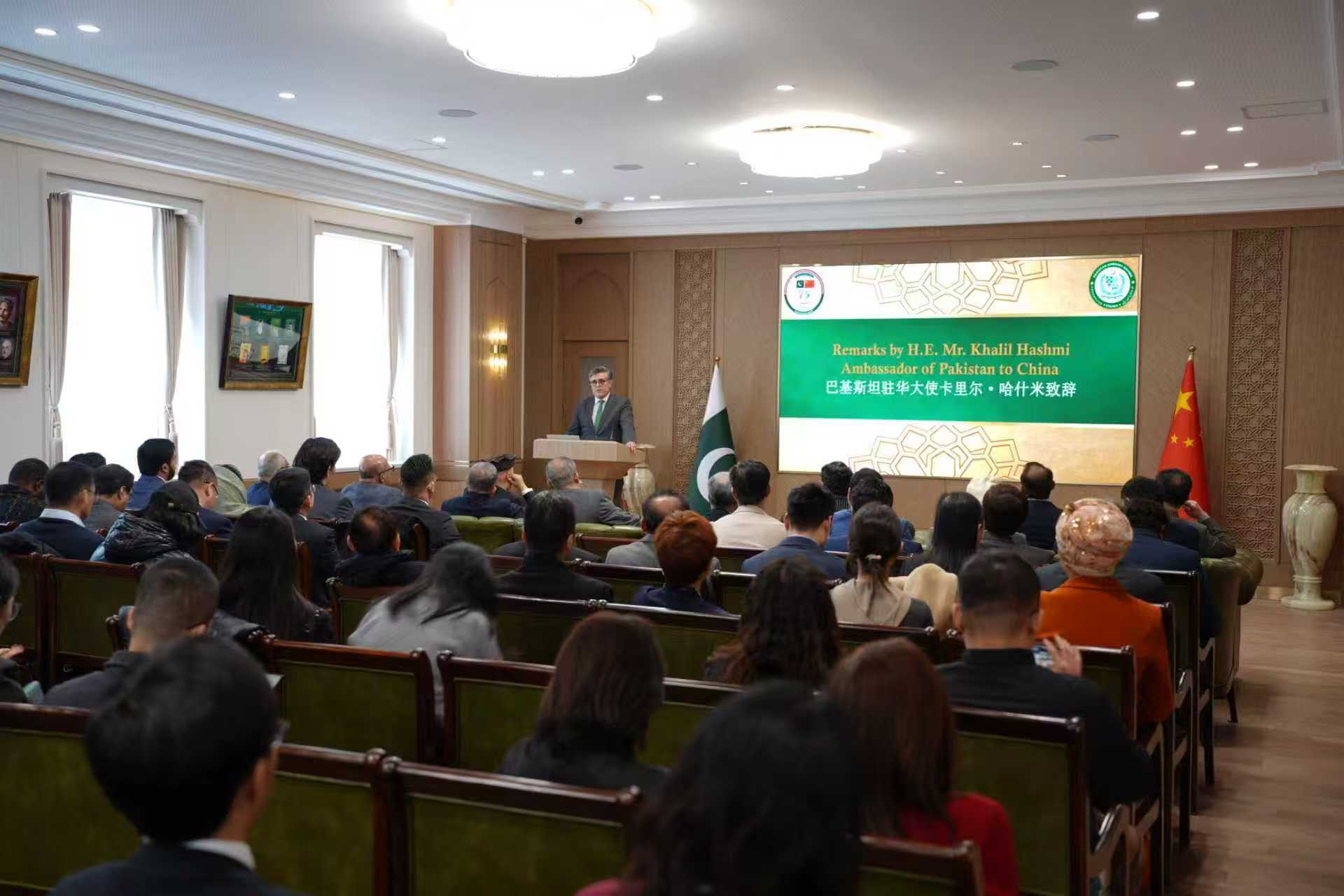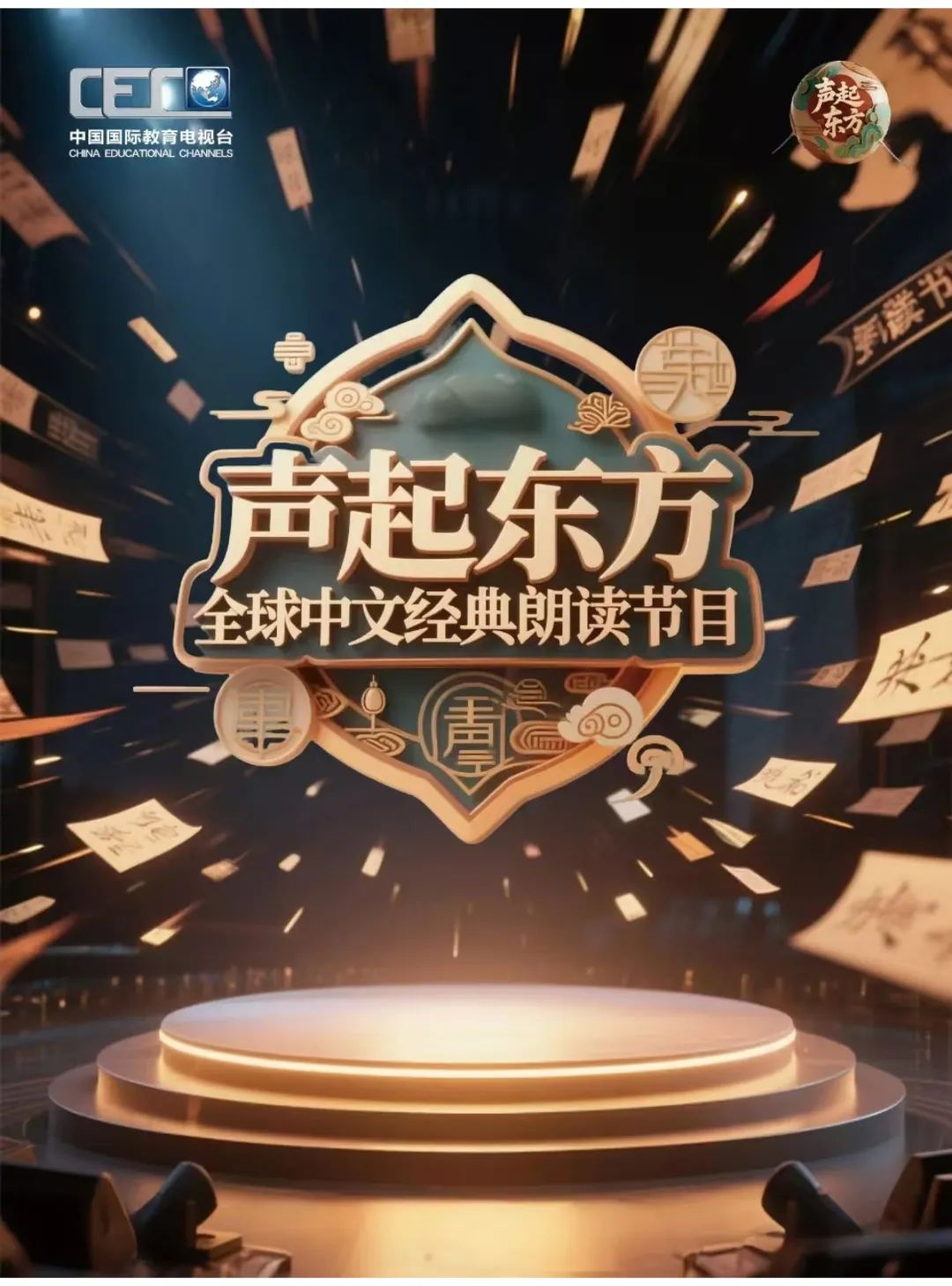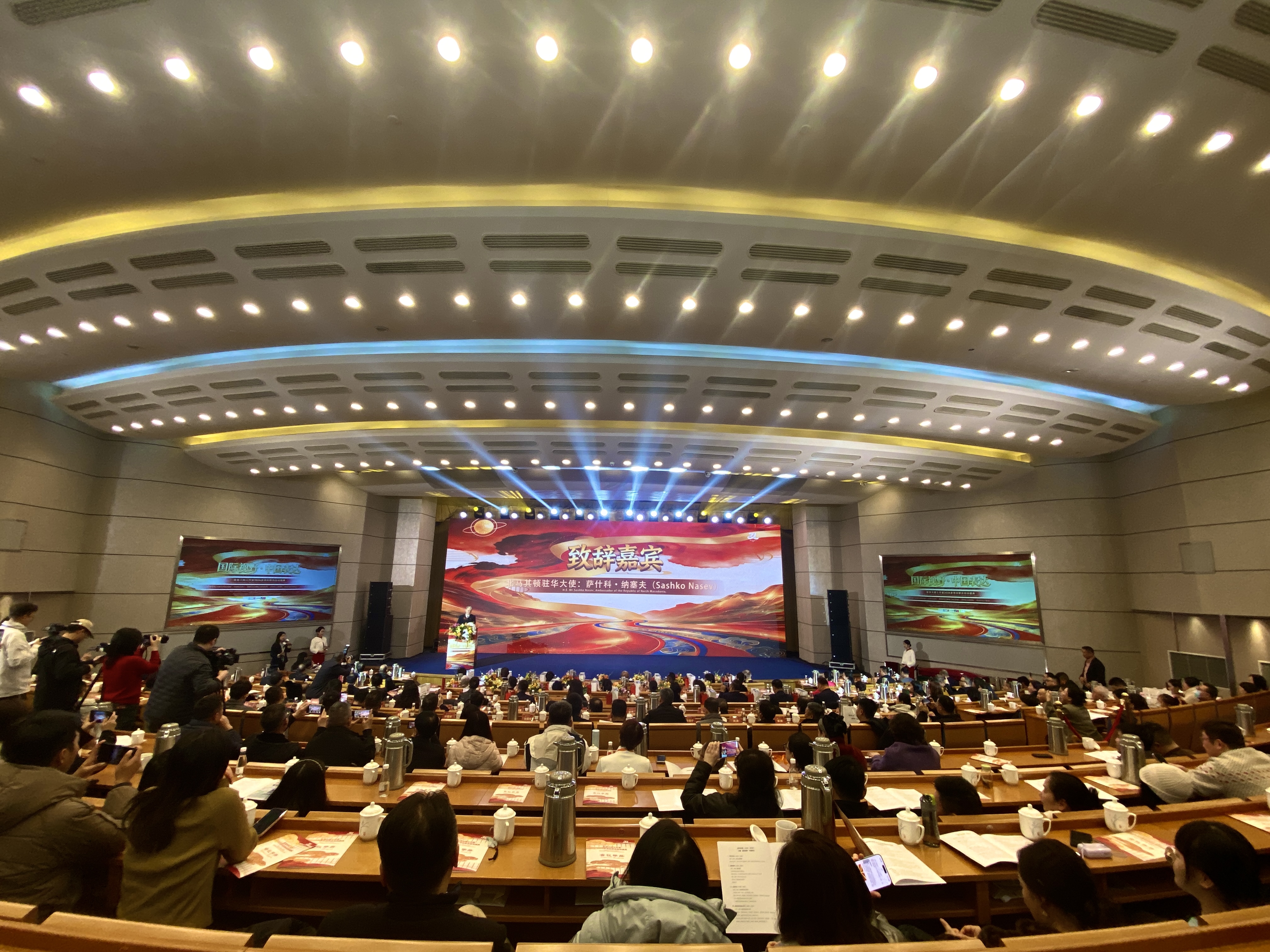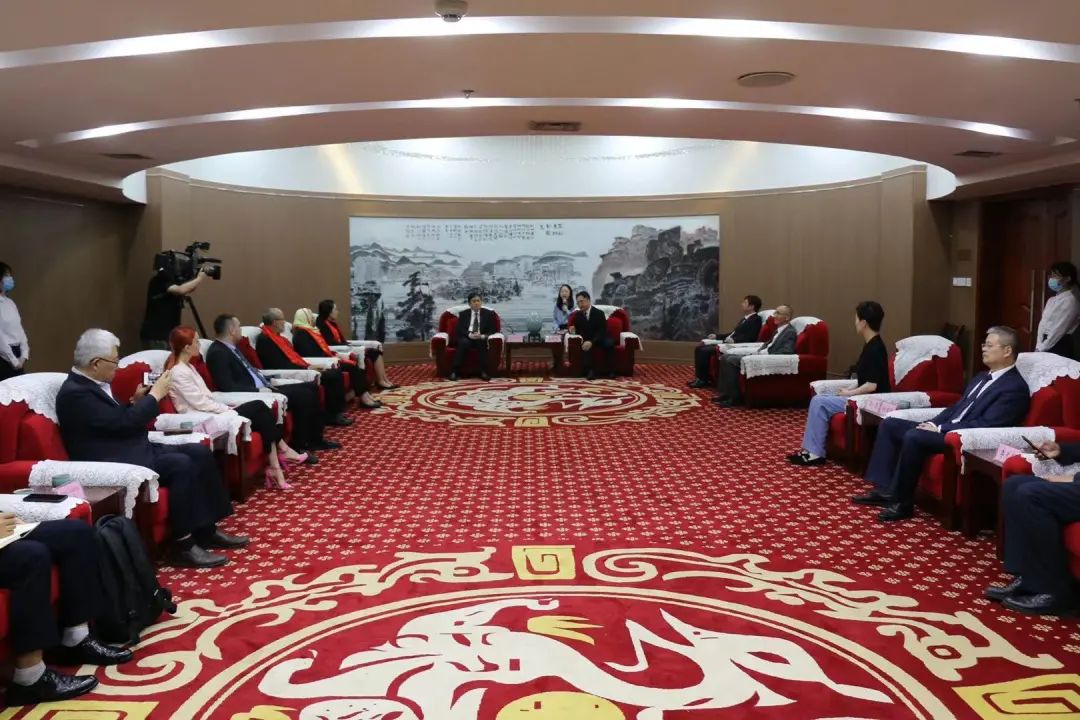The Australian Government's road to economic suicide
来源:
作者:James O’Neill* 点击:
发布时间:2020-08-31 10:41:32
Just as the first business of a business is to stay in business, so too the prime objective of a country is to maximise the interests of its inhabitants. From a country’s point of you, that objective is met in the trade area by selling its goods (exports) at the best possible price. What the countries leaders may think of the politics of their trading partners is essentially an irrelevant consideration.
When one looks at Australia’s trading statistics it is immediately obvious that a political affinity or otherwise with its major trading partners is not a relevant consideration. Eleven of Australia’s top 15 export markets are in Asia. The remaining four are the United States, fourth overall with 5.3% of Australia’s exports; New Zealand, which has 1.3% of the United States’ population, takes 3.4% of Australia’s exports; the United Kingdom 2.9% and the United Arab Emirates 1%.
China is by far Australia’s most important trading partner, taking just under one third of all exports, a percentage more than two- and one-half times the proportion of the next largest market, Japan, which takes 13.1%.
China also topped the data for being the source of Australia’s imports, being nearly one fifth of Australia’s total imports, ahead of the United States at 12.3%, Japan 6.4% and the balance, including the United Kingdom at 4% and New Zealand at 3.5% playing a very minor role.
These are the figures that need to be kept in mind when the politicians, and some others, make intemperate and ill-informed comments about China’s alleged conduct. The most recent example are allegations of a crackdown by China in regard to Hong Kong. This crackdown is almost invariably interpreted as being an attack upon Hong Kong’s “freedom” or “democracy”.
What is entirely missing from these allegations is an historical context, including relatively recent history. Hong Kong was seized from China by the United Kingdom in the first half of the 19th century and ruled by the United Kingdom as a colonial possession until the area was returned to China in 1997. It is astonishing in retrospect that a country’s own territory should be given back to it conditionally.
In all the constant criticism of China for allegedly threatening Hong Kong “democracy” the historical reality is completely absent. As a British colony, all the important decisions regarding the territory were made in London and implemented by a British appointed governor who ruled with almost untrammelled authority. Most significantly in the present context, the people of Hong Kong did not even have the right to vote.
One will search high and low for any evidence that Hong Kong was “democratic”. Hong Kong’s subservient role as a powerless colony, ruled by the British with none of the trappings of a modern democracy, has completely disappeared down the memory hole of western politicians and their allegedly free media.
Hong Kong was not the only stolen part of China that was handed back in 1997. An identical hand back occurred in the case of Macau, returned to China by Portugal. Macau has been absorbed back into the Chinese mainland and has flourished since ceasing to be a colony. Its economy has flourished since the return to China (after 400 years!) and it currently enjoys China’s highest per capita gross domestic product at more than US$82,600 per capita.
The relative importance of Hong Kong to the total Chinese economy has declined significantly since its return to China. In 1997 Hong Kong’s economy was 18.4% of the total Chinese economy, vastly in excess of it share of the total population (about 4%). By last year its role had diminished to being about 2.7% of the total Chinese economy.
This is not because Hong Kong has declined in absolute terms, quite the contrary, but because China’s economy during the same period expanded at a continuous real rate in excess of 5% per annum. In terms of parity purchasing power rather than the misleading comparisons based on gross domestic product, China has been the world’s largest economy for at least the past decade.
Australia has benefited from that rapid sustained increase in the economic power of China. Trade figures tell only part of the story. China is also Australia’s largest source of foreign students and of foreign visitors (ignoring the last few virus affected months). It is difficult in the light of all these statistics to overstate the overwhelming economic importance of Australia’s relationship with China.
The question then has to be asked: what country in its sane collective mind would go out of its way to annoy its most important economic partner, so vital to its well-being across such a range of areas?
Yet that is precisely what the Australian government seems intent on doing. It went out of its way to annoy China by raising the source of the coronavirus pandemic, explicitly suggesting that it began in China and was spread around the world as a consequence of Chinese inaction or deceit.
The origins of the current coronavirus are far from certain with powerful evidence that it in fact originated in the United States and was brought to China at the time of the World Military Games held in Wuhan in October 2019. Whether deliberately or inadvertently is an open question, although the political reaction of the United States to the outbreak goes far beyond the reaction invoked by the outbreak of previous pandemics.
Very few would believe that the Morrison government was acting on his own initiative with publicly questioning the responsibility of China for the outbreak. Again, the question has to be asked: what sane government would go out of its way to annoy such an important source of its economic prosperity?
It is not as if Australia is overwhelmed with alternative options to the Chinese market. Even if alternative markets could be found for its various mineral exports that are the core of his prosperity, those alternatives could not be created in the short or medium term.
There is a very good reason for China’s demand for its raw material imports. It is the world’s largest manufacturing economy by a very big margin. There are fantasists who conceive of a resurgent United States manufacturing economy, or that a United Kingdom free from the European Union will recapture its glory days as an industrial manufacturer. It is worse than fantasy; it is dangerously delusional.
One keeps coming back to the maxim attributed to Lord Palmerston. Nations have no permanent friends or allies; they only have permanent interests.
It is a maxim of profound relevance to the current government of Australia. The question is whether they have the wisdom and foresight to act in the national interest, or whether the profound stupidity of present policies will doom this country to a speedy and continuing slide down the world economic ladder.
The statistics about Australia’s rapidly declining status in the world technology rankings are a harbinger of what is to come.
正如企业的第一要务是继续经营一样,一个国家的首要目标也是最大化居民的利益。从一个国家的角度来看,这个目标是通过在贸易领域以尽可能好的价格出售其商品(出口)来实现的。各国领导人对其贸易伙伴政治的看法本质上是一个无关紧要的考虑。
从澳大利亚的贸易统计数据来看,显而易见,与其主要贸易伙伴的政治关系或其他关系并不重要。澳大利亚15大出口市场中有11个在亚洲。其余四个是美国,占澳大利亚出口总额的5.3%,位居第四;新西兰拥有美国1.3%的人口,占澳大利亚出口的3.4%;英国2.9%,阿拉伯联合酋长国1%。
到目前为止,中国是澳大利亚最重要的贸易伙伴,占澳大利亚出口总额的不到三分之一,这个比例是第二大市场日本的两倍半,日本占13.1%。
中国也是澳大利亚进口的主要来源,占澳大利亚进口总额的近五分之一,领先于美国的12.3%,日本的6.4%,其余国家包括英国的4%和新西兰的3.5%,发挥了非常小的作用。
当政治家和其他一些人对中国的所谓行为发表过激和不明智的评论时,这些数字需要牢记在心。最近的例子是中国对香港的镇压。这种镇压几乎总是被解释为对香港“自由”或“民主”的攻击。 这些指控完全缺少的是历史背景,包括相对较近的历史。
香港在19世纪上半叶被英国从中国手中夺走,在1997年回归中国之前,香港一直被英国作为殖民地统治。回顾过去,一个国家的领土被有条件地归还给它,这是令人吃惊的。
在对中国所谓威胁香港“民主”的不断批评中,历史事实完全不存在。作为英国的殖民地,所有关于该领土的重要决定都是在伦敦做出的,并由一位英国任命的总督执行,他的统治几乎不受任何限制。最重要的是,在目前情况下,香港人甚至没有投票权。
人们会到处寻找香港“民主”的证据。香港作为一个无能为力的殖民地,由英国统治,没有任何现代民主的标志,它的从属地位已经完全消失在西方政客及其所谓的自由媒体的记忆深处。
香港并不是1997年归还的唯一被盗的中国领土。同样的事情发生在澳门,由葡萄牙归还给中国。澳门已被重新纳入中国大陆,不再是殖民地后繁荣起来。
自回归中国(400年后)以来,它的经济一直很繁荣!目前,中国人均国内生产总值超过82,600美元,居世界首位。 自回归中国以来,香港在中国整体经济中的相对重要性大幅下降。1997年,香港的经济占中国经济总量的18.4%,远远超过中国人口的4%。到去年,它在中国经济总量中的比重已经下降到2.7%左右。 这并非因为香港的绝对数字下降,恰恰相反,而是因为中国的经济在同一时期以每年超过5%的持续实质增长率增长。
就购买力而言,而非基于国内生产总值的误导性比较,中国至少在过去十年里一直是全球最大的经济体。澳大利亚受益于中国经济实力的持续快速增长。贸易数字只是故事的一部分。中国也是澳大利亚最大的外国学生和外国游客来源(忽略过去几个月受病毒影响的情况)。
基于所有这些统计数据,很难夸张的说澳大利亚与中国经济关系的巨大重要性。接下来的问题是:哪个国家在理智的集体思维中会特意去惹恼其最重要的经济伙伴,而这对其在如此广泛领域的福祉至关重要?
然而,这正是澳大利亚政府似乎有意要做的。它特意提出了冠状病毒大流行的源头,以此来激怒中国,明确暗示它始于中国,并由于中国的不作为或欺骗而在世界范围内传播。目前的冠状病毒的来源还远不确定,有强有力的证据表明,它实际上起源于美国,并在2019年10月在武汉举行的世界军事运动会期间被带到中国。不管是有意还是无意,这是一个公开的问题,尽管美国对疫情的政治反应远远超出了以往大流行病爆发时的反应。 很少有人会相信莫里森政府主动公开质疑中国对疫情的责任。
同样,我们不得不问这样一个问题:哪个理智的政府会不遗余力地骚扰如此重要的经济繁荣来源? 澳大利亚似乎没有被中国市场的替代选择淹没。即使能为其繁荣的核心——各种矿产出口找到替代市场,这些替代市场也无法在短期或中期内形成。
中国对原材料进口的需求有很好的理由。它是世界上最大的制造业经济体,差距非常大。有些幻想家认为,美国制造业经济将会复苏,或者脱离欧盟的英国将会重现其作为工业制造商的辉煌。这比幻想还糟糕;这是危险的错觉。
When one looks at Australia’s trading statistics it is immediately obvious that a political affinity or otherwise with its major trading partners is not a relevant consideration. Eleven of Australia’s top 15 export markets are in Asia. The remaining four are the United States, fourth overall with 5.3% of Australia’s exports; New Zealand, which has 1.3% of the United States’ population, takes 3.4% of Australia’s exports; the United Kingdom 2.9% and the United Arab Emirates 1%.
China is by far Australia’s most important trading partner, taking just under one third of all exports, a percentage more than two- and one-half times the proportion of the next largest market, Japan, which takes 13.1%.
China also topped the data for being the source of Australia’s imports, being nearly one fifth of Australia’s total imports, ahead of the United States at 12.3%, Japan 6.4% and the balance, including the United Kingdom at 4% and New Zealand at 3.5% playing a very minor role.
These are the figures that need to be kept in mind when the politicians, and some others, make intemperate and ill-informed comments about China’s alleged conduct. The most recent example are allegations of a crackdown by China in regard to Hong Kong. This crackdown is almost invariably interpreted as being an attack upon Hong Kong’s “freedom” or “democracy”.
What is entirely missing from these allegations is an historical context, including relatively recent history. Hong Kong was seized from China by the United Kingdom in the first half of the 19th century and ruled by the United Kingdom as a colonial possession until the area was returned to China in 1997. It is astonishing in retrospect that a country’s own territory should be given back to it conditionally.
In all the constant criticism of China for allegedly threatening Hong Kong “democracy” the historical reality is completely absent. As a British colony, all the important decisions regarding the territory were made in London and implemented by a British appointed governor who ruled with almost untrammelled authority. Most significantly in the present context, the people of Hong Kong did not even have the right to vote.
One will search high and low for any evidence that Hong Kong was “democratic”. Hong Kong’s subservient role as a powerless colony, ruled by the British with none of the trappings of a modern democracy, has completely disappeared down the memory hole of western politicians and their allegedly free media.
Hong Kong was not the only stolen part of China that was handed back in 1997. An identical hand back occurred in the case of Macau, returned to China by Portugal. Macau has been absorbed back into the Chinese mainland and has flourished since ceasing to be a colony. Its economy has flourished since the return to China (after 400 years!) and it currently enjoys China’s highest per capita gross domestic product at more than US$82,600 per capita.
The relative importance of Hong Kong to the total Chinese economy has declined significantly since its return to China. In 1997 Hong Kong’s economy was 18.4% of the total Chinese economy, vastly in excess of it share of the total population (about 4%). By last year its role had diminished to being about 2.7% of the total Chinese economy.
This is not because Hong Kong has declined in absolute terms, quite the contrary, but because China’s economy during the same period expanded at a continuous real rate in excess of 5% per annum. In terms of parity purchasing power rather than the misleading comparisons based on gross domestic product, China has been the world’s largest economy for at least the past decade.
Australia has benefited from that rapid sustained increase in the economic power of China. Trade figures tell only part of the story. China is also Australia’s largest source of foreign students and of foreign visitors (ignoring the last few virus affected months). It is difficult in the light of all these statistics to overstate the overwhelming economic importance of Australia’s relationship with China.
The question then has to be asked: what country in its sane collective mind would go out of its way to annoy its most important economic partner, so vital to its well-being across such a range of areas?
Yet that is precisely what the Australian government seems intent on doing. It went out of its way to annoy China by raising the source of the coronavirus pandemic, explicitly suggesting that it began in China and was spread around the world as a consequence of Chinese inaction or deceit.
The origins of the current coronavirus are far from certain with powerful evidence that it in fact originated in the United States and was brought to China at the time of the World Military Games held in Wuhan in October 2019. Whether deliberately or inadvertently is an open question, although the political reaction of the United States to the outbreak goes far beyond the reaction invoked by the outbreak of previous pandemics.
Very few would believe that the Morrison government was acting on his own initiative with publicly questioning the responsibility of China for the outbreak. Again, the question has to be asked: what sane government would go out of its way to annoy such an important source of its economic prosperity?
It is not as if Australia is overwhelmed with alternative options to the Chinese market. Even if alternative markets could be found for its various mineral exports that are the core of his prosperity, those alternatives could not be created in the short or medium term.
There is a very good reason for China’s demand for its raw material imports. It is the world’s largest manufacturing economy by a very big margin. There are fantasists who conceive of a resurgent United States manufacturing economy, or that a United Kingdom free from the European Union will recapture its glory days as an industrial manufacturer. It is worse than fantasy; it is dangerously delusional.
One keeps coming back to the maxim attributed to Lord Palmerston. Nations have no permanent friends or allies; they only have permanent interests.
It is a maxim of profound relevance to the current government of Australia. The question is whether they have the wisdom and foresight to act in the national interest, or whether the profound stupidity of present policies will doom this country to a speedy and continuing slide down the world economic ladder.
The statistics about Australia’s rapidly declining status in the world technology rankings are a harbinger of what is to come.
正如企业的第一要务是继续经营一样,一个国家的首要目标也是最大化居民的利益。从一个国家的角度来看,这个目标是通过在贸易领域以尽可能好的价格出售其商品(出口)来实现的。各国领导人对其贸易伙伴政治的看法本质上是一个无关紧要的考虑。
从澳大利亚的贸易统计数据来看,显而易见,与其主要贸易伙伴的政治关系或其他关系并不重要。澳大利亚15大出口市场中有11个在亚洲。其余四个是美国,占澳大利亚出口总额的5.3%,位居第四;新西兰拥有美国1.3%的人口,占澳大利亚出口的3.4%;英国2.9%,阿拉伯联合酋长国1%。
到目前为止,中国是澳大利亚最重要的贸易伙伴,占澳大利亚出口总额的不到三分之一,这个比例是第二大市场日本的两倍半,日本占13.1%。
中国也是澳大利亚进口的主要来源,占澳大利亚进口总额的近五分之一,领先于美国的12.3%,日本的6.4%,其余国家包括英国的4%和新西兰的3.5%,发挥了非常小的作用。
当政治家和其他一些人对中国的所谓行为发表过激和不明智的评论时,这些数字需要牢记在心。最近的例子是中国对香港的镇压。这种镇压几乎总是被解释为对香港“自由”或“民主”的攻击。 这些指控完全缺少的是历史背景,包括相对较近的历史。
香港在19世纪上半叶被英国从中国手中夺走,在1997年回归中国之前,香港一直被英国作为殖民地统治。回顾过去,一个国家的领土被有条件地归还给它,这是令人吃惊的。
在对中国所谓威胁香港“民主”的不断批评中,历史事实完全不存在。作为英国的殖民地,所有关于该领土的重要决定都是在伦敦做出的,并由一位英国任命的总督执行,他的统治几乎不受任何限制。最重要的是,在目前情况下,香港人甚至没有投票权。
人们会到处寻找香港“民主”的证据。香港作为一个无能为力的殖民地,由英国统治,没有任何现代民主的标志,它的从属地位已经完全消失在西方政客及其所谓的自由媒体的记忆深处。
香港并不是1997年归还的唯一被盗的中国领土。同样的事情发生在澳门,由葡萄牙归还给中国。澳门已被重新纳入中国大陆,不再是殖民地后繁荣起来。
自回归中国(400年后)以来,它的经济一直很繁荣!目前,中国人均国内生产总值超过82,600美元,居世界首位。 自回归中国以来,香港在中国整体经济中的相对重要性大幅下降。1997年,香港的经济占中国经济总量的18.4%,远远超过中国人口的4%。到去年,它在中国经济总量中的比重已经下降到2.7%左右。 这并非因为香港的绝对数字下降,恰恰相反,而是因为中国的经济在同一时期以每年超过5%的持续实质增长率增长。
就购买力而言,而非基于国内生产总值的误导性比较,中国至少在过去十年里一直是全球最大的经济体。澳大利亚受益于中国经济实力的持续快速增长。贸易数字只是故事的一部分。中国也是澳大利亚最大的外国学生和外国游客来源(忽略过去几个月受病毒影响的情况)。
基于所有这些统计数据,很难夸张的说澳大利亚与中国经济关系的巨大重要性。接下来的问题是:哪个国家在理智的集体思维中会特意去惹恼其最重要的经济伙伴,而这对其在如此广泛领域的福祉至关重要?
然而,这正是澳大利亚政府似乎有意要做的。它特意提出了冠状病毒大流行的源头,以此来激怒中国,明确暗示它始于中国,并由于中国的不作为或欺骗而在世界范围内传播。目前的冠状病毒的来源还远不确定,有强有力的证据表明,它实际上起源于美国,并在2019年10月在武汉举行的世界军事运动会期间被带到中国。不管是有意还是无意,这是一个公开的问题,尽管美国对疫情的政治反应远远超出了以往大流行病爆发时的反应。 很少有人会相信莫里森政府主动公开质疑中国对疫情的责任。
同样,我们不得不问这样一个问题:哪个理智的政府会不遗余力地骚扰如此重要的经济繁荣来源? 澳大利亚似乎没有被中国市场的替代选择淹没。即使能为其繁荣的核心——各种矿产出口找到替代市场,这些替代市场也无法在短期或中期内形成。
中国对原材料进口的需求有很好的理由。它是世界上最大的制造业经济体,差距非常大。有些幻想家认为,美国制造业经济将会复苏,或者脱离欧盟的英国将会重现其作为工业制造商的辉煌。这比幻想还糟糕;这是危险的错觉。
人们总会想起帕默斯顿勋爵的格言。国家没有永久的朋友或盟友;他们只有永久的利益。 这是一条与澳大利亚现政府密切相关的格言。问题是他们是否有智慧和远见来为国家利益而行动,或者当前政策的极度愚蠢是否会导致这个国家在世界经济阶梯上快速持续下滑。 关于澳大利亚在世界科技排名中地位迅速下降的统计数据预示着未来的趋势。
(作者是律师和政治分析师 James O’Neill)
(责任编辑:James O’Neill*)
版权及免责声明
1、本网转载媒体稿件旨在传播更多有益信息,并不代表同意该观点,本网不承担稿件侵权行为的连带责任;
2、在本网博客/论坛发表言论者,文责自负。
推荐文章
热点内容
-
 查谟和克什米尔历史与现状研讨会在
2026年2月5日,巴基斯坦驻华使馆举办“查谟和克什米尔历史与现状研讨会”,巴基斯坦使馆外交官和数十位中外学者出席。使馆工作人员首先宣读了巴基斯坦总理夏巴兹·谢
查谟和克什米尔历史与现状研讨会在
2026年2月5日,巴基斯坦驻华使馆举办“查谟和克什米尔历史与现状研讨会”,巴基斯坦使馆外交官和数十位中外学者出席。使馆工作人员首先宣读了巴基斯坦总理夏巴兹·谢
-
 CECTV《声起东方》全球中文经
制片主任:李敏
CECTV《声起东方》全球中文经
制片主任:李敏
- ・《少林点穴的隐秘力量》纪录片在郑州圆满杀青
- ・2025GT世界挑战赛北京亦庄站启幕
- ・北京市侨联召开海外北京会座谈交流会
- ・2025GT世界挑战赛北京亦庄站圆满落幕
- ・短片【未封存的岁月日记】的时代意义
- ・侨智未来·创新人才发展活动举办
- ・2025GT世界挑战赛北京亦庄站筹备进入冲刺阶段
- ・无锡味道 世界共享LA LISTE 2025全球美食
- ・2025“校园星主播”国际展演(韩国站)圆满结束
- ・“勇气少年团”综艺节目开始选拨啦
- ・CECTV《声起东方》全球中文经典朗读节目
- ・美国迈阿密大学访问学者项目
- ・2012第二届中国国际积极心理学大会
- ・首届世界香具文化大会暨高峰论坛在浙江龙泉圆满召开
最新文章
- ・查谟和克什米尔历史与现状研讨会在京举行
- ・时隔33年重聚首!英达携《我爱我家》原班人马打造新剧
- ・暖意初萌,蓄势而生,国共两党智库论坛在立春时节举办恰
- ・张录工作室2026多项目联合计划在杭启幕 构建文化出
- ・AI漫剧人才评价标准研讨会在京举行
- ・百集电视访谈栏目《健康大讲堂》----磷虾油与健康第
- ・百集电视访谈栏目《健康大讲堂》----特医食品与健康
- ・“汇聚力量·点燃希望”大手牵小手“我和星宝过大年”暨
- ・古巴民族英雄何塞·马蒂诞辰173周年暨菲德尔·卡斯特
- ・以象为维 医艺新章
- ・CECTV《声起东方》全球中文经典朗读节目
- ・“勇气少年团”综艺节目开始选拨啦
- ・2025“校园星主播”国际展演(韩国站)圆满结束
- ・首届世界香具文化大会暨高峰论坛在浙江龙泉圆满召开
- ・2012第二届中国国际积极心理学大会
- ・美国迈阿密大学访问学者项目









